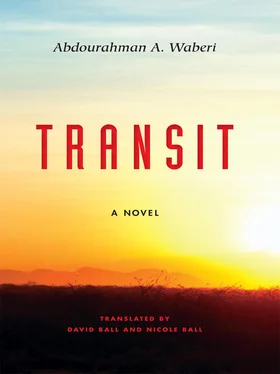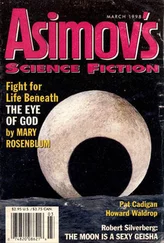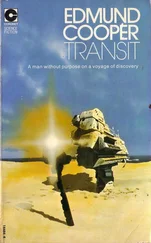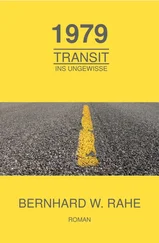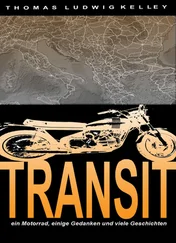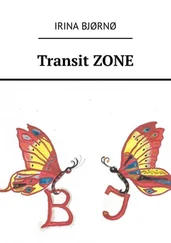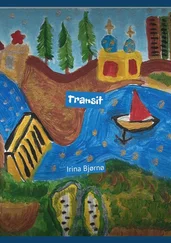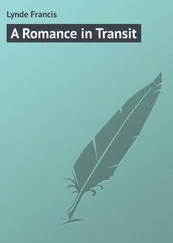Abdourahman Waberi - Transit
Здесь есть возможность читать онлайн «Abdourahman Waberi - Transit» весь текст электронной книги совершенно бесплатно (целиком полную версию без сокращений). В некоторых случаях можно слушать аудио, скачать через торрент в формате fb2 и присутствует краткое содержание. Год выпуска: 0101, Издательство: Indiana University Press, Жанр: Современная проза, на английском языке. Описание произведения, (предисловие) а так же отзывы посетителей доступны на портале библиотеки ЛибКат.
- Название:Transit
- Автор:
- Издательство:Indiana University Press
- Жанр:
- Год:0101
- ISBN:нет данных
- Рейтинг книги:3 / 5. Голосов: 1
-
Избранное:Добавить в избранное
- Отзывы:
-
Ваша оценка:
- 60
- 1
- 2
- 3
- 4
- 5
Transit: краткое содержание, описание и аннотация
Предлагаем к чтению аннотацию, описание, краткое содержание или предисловие (зависит от того, что написал сам автор книги «Transit»). Если вы не нашли необходимую информацию о книге — напишите в комментариях, мы постараемся отыскать её.
Transit — читать онлайн бесплатно полную книгу (весь текст) целиком
Ниже представлен текст книги, разбитый по страницам. Система сохранения места последней прочитанной страницы, позволяет с удобством читать онлайн бесплатно книгу «Transit», без необходимости каждый раз заново искать на чём Вы остановились. Поставьте закладку, и сможете в любой момент перейти на страницу, на которой закончили чтение.
Интервал:
Закладка:
27. ABDO-JULIEN
PAPA'S FACE HAS SOMETHING troubling and fragile in it, something he owes to his years of famine and anguish, something that comes from way back, from his childhood I imagine; the attraction of nothingness is visible in his eyes, too. Every evening, his account of what was really a rather banal day has sounded strange to our ears recently. The words, first of all: words of a hounded man, of a wounded soul. And then the tone: a tone of elegy. One silently wonders how much oxygen is left in this tall, reserved man. Most people around here respect him a great deal, and he's head and shoulders above those who ignore him. People from all walks of life come to our house: Blacks and Whites, browns like me, the nobodies of the day and the phantoms of the night. Opponents of the regime who slip in stealthily. Reciters of 114 suras of the holy Book. He listens to their complaints and dips into his pocket more often than he should.
Ancestors also move surreptitiously around our home at sunset. Spirits who live with us: we can sense them crossing the courtyard at set times; a little whirlwind of sand follows them. Sometimes we breathe in their smell hours after they've gone by; we can also hear their clicking, and Papa announces that they, too, are beginning their day of cooking and household chores. No need to be in on the secret; all you have to do is perk up your ears and open wide your eyes. Nor do you need the strength of the cart-pullers you can see on Place Rimbaud to stand up to those spirits: they're quite peaceful and avoid us, because we're the ones who have remained blind, unable to see them coming. It is said that they go to great lengths not to crush us like eggshells. Unless you have the bad luck to surprise them, but then all they do is slap you — which may well send you straightaway into the other world. So many of us are found at dawn with frightened eyes, bewildered minds, and drool at the corner of the lips. A sheikh or a djinn-hunter is called to the rescue. Someone who can do nothing, or just about, most of the time. And the unfortunate victim drags himself around on his bottom every day, or never leaves his bed again. His life will be nothing but misery and survival, between rats and garbage. A stench that almost makes you faint.
Speaking of rats, they say they graze on you in your sleep; you can feel them walking over you. The boldest ones nibble the rough skin of your feet and breathe on the exact spot they just bit as if to soothe you or keep you asleep. If you sleep without any light — and worse, with no mosquito netting — watch out for your toes; they can bite you bloody. If you're exasperated by the squeaks of these rodents or the whirring of bat wings, don't try to kill them; the ancestors have forbidden it. They have been blood relations for eternities. Outside, only the gleam of braziers or storm-lamps and the sounds of people clearing their throats give life to the alleys. The best you can do is leave the muddy days on the tip of your toes, wait for dawn, and pray to the Ancients. Only children, boys in particular (they are considered a source of wealth comparable to the fat accumulated in a ram's tail), have some small chance of being listened to — and even then. Tomorrow we'll see if the lying, limping hyena has not carried everything away in its path. Tomorrow we'll see if the beggars can do something for the many, the very many, who have not gained favor with the spirits of the dead. Those who the ebb and flow of famine have progressively deposited in the city like alluvium in the hollow of oases. Papa used to tell a story that he got from Grandpa Awaleh, to wit: alms are given to the mystical beggars of Bengal so that the seven lotuses that sleep in each of us may blossom. A story brought back to us by the Yemenites, those Phoenicians of the Red Sea.
28. AWALEH
I, TOO, HAVE RETURNED from far away and from many dangers. I have traveled the length and breadth of the screes, deserts of sand, ergs and regs, the sides of bald mountains, and the dunes round as a dromedary's hump. I have slaked my thirst with the sap of the tamarins and aloes that grow in the beds of the wadis. A mere scrap would satisfy my hunger. Hidden in the silence of the desert, I moved like a chameleon with the slowness of a glacier. I had in my blood the required economy of breath, the uneasiness of the sentinel, and the gaze that abolishes the horizon. My companions and I — the famous Desert Scorpions that a discreet, jovial Italian friend, Hugo Pratt, had put on a saddle in his picture books, so I've been told — instinctively knew how to detect the pulsations of the earth's crust, sound the very guts of the desert, decode the book of the sands, and sense the coming of a storm. Free ourselves of whatever hampers the step, weighs down the walk, and dampens the forward thrust. The most gifted of us had the power to put the deepest song of the earth into words, wary of the small change of everyday words, a song that wells up from its belly, song of the slow crossing, a song unfolding to infinity. An opening onto the familiar world visited, lived in, questioned a thousand times. Since the beginning of time, we — that is, me and all my colleagues working in Guistir, the region of the three borders (Djibouti, Somalia, Ethiopia) that saw me born — haven't needed official documents to accompany that melody, to catch it at its birth, at the time when the cold desert night is separated from the reseda-yellow light of dawn. No member of our army of border guards, called ANG, 1has an authentic birth certificate; we were all “born circa…” Because nomadic time is not regulated by any calendar or encumbered by any archive, it does not sign the official papers demanded by the goatees of the Third Republic. Everybody was “born circa” in my time, and only the intrusion of the French colonial administration could impose such a delicate intention on us. For our own good, of course. And we accepted it without trying to bargain. That is our strength, our pride, for we were careful not to reveal our raw, intimate thoughts to the Occupier, and as soon as things turned sour, at a sign or the snap of a finger we would take off: the whiteness, the white-hot iron bar of the sun of insubordination, was ours — the only horizon within our reach. Do not trust appearances, those old men who drag their bones to the shade of the palm tree, the ones you meet by the roadside — they keep up an exhausting pace as soon as they set their body into motion. With their nose to the wind, one foot in front of another, in the thickness of the dunes or the rough surface of the ergs — once they have set off, no one can stop them. And all those seasons with their terrifying faces, we would spend them in the nomadic backcountry. From khamsin to monsoon, we came and went between the coast and the hinterland, with some exceptional periods, like the English blockade under Churchill, which plunged the Territory, governed by the Vichy regime with an iron hand, into the depths of hunger and thirst. During that blockade, the people of this country tasted bitter roots and cat bouillon: the memory of that time is still tattooed on them to this day.
But let us return to our old walkers, whom the administration never succeeded in taming. And how! We walked faster than the beat of their drum, we were tireless; caravan robbers know something about that. Hear this: when we were returning from a surveillance mission around Lake Abbé—“that copper sulfate-colored lake,” as Hugo Pratt wrote in his little spiral notebooks — to the great astonishment of the scientists in the capital, we discovered fossils. We had noticed that after heavy rains, the soil around the lake would soften and reveal animals (small crocodiles, birds, fish, or warthogs) that had been perfectly preserved in the briny mud for eight thousand years. Not a word of thanks from the paleontologists and geologists of the capital. A fossil is an open book, I told myself. What did he tell us exactly, that dear old Hugo, about half-open books? Oh yes, he was talking about Tagore, a man from India he said was as wise as our shepherds who had the faculty of distinguishing living beings and objects under a weak light or even at night: “An open book is a talking brain; closed, a waiting friend; forgotten, a forgiving soul; destroyed, a weeping heart.” Replace “book” with “earth” and you'll have some idea of the magical spells hidden in this land where man was not born of Adam but of little Lucy. These oasis landscapes always throw us into long meditative hours that Charles de Foucauld — the skeleton-thin hermit of the Hoggar, another man Hugo Pratt admired — would have appreciated. The sun of this country is a richly colored doublet; its moon is quicksilver. Its cacti bathe in a light so elegant you'd think they're filled with blue blood. The gentle pastels of its skies at the crack of dawn have in them something that can change any normally constituted person into a sensory sponge. All these spells stir in the mouths of our storytellers, those barometers of public opinion who fear the silence of the body. They're itching to explain the mysteries hidden in nature and humanity through the language of magic. The wire of a detonator lies unrolled here; you can follow its traces between the rocks. They stroke the muzzle of creation, use only ancient weapons (the stone is also a weapon, the word, the breath, the flint rubbed until it sparks; think for a moment of the bare hands imprinted on the rough cave by our distant great-grandfathers), and put a dying future in perspective by chewing over its past again and again. They suffer under our sun. They die under our moon, knowing the extreme urgency of the creative act. They are from no place. They tell time. They tell destiny.
Читать дальшеИнтервал:
Закладка:
Похожие книги на «Transit»
Представляем Вашему вниманию похожие книги на «Transit» списком для выбора. Мы отобрали схожую по названию и смыслу литературу в надежде предоставить читателям больше вариантов отыскать новые, интересные, ещё непрочитанные произведения.
Обсуждение, отзывы о книге «Transit» и просто собственные мнения читателей. Оставьте ваши комментарии, напишите, что Вы думаете о произведении, его смысле или главных героях. Укажите что конкретно понравилось, а что нет, и почему Вы так считаете.
